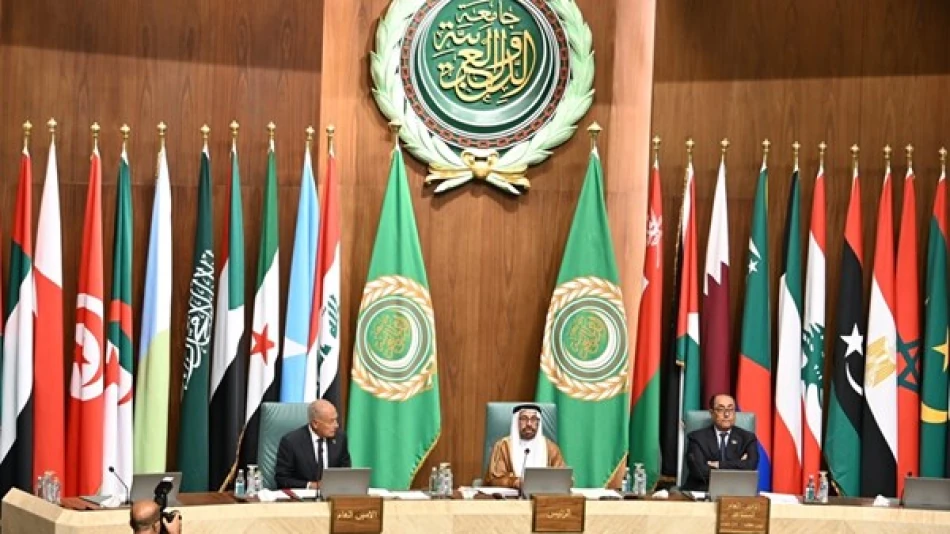
Israeli Annexation of West Bank a Red Line for Palestine
UAE Draws Red Line on West Bank Annexation as Arab Nations Unite Against Israeli Expansion
The United Arab Emirates has issued its strongest warning yet against Israeli territorial expansion, declaring any annexation of the West Bank or occupied Palestinian territories a "red line" that would undermine regional security. The statement, delivered during the 164th Arab Foreign Ministers Council meeting, signals a hardening of positions even among Israel's newer diplomatic partners as the Gaza conflict reshapes Middle Eastern alliances.
Diplomatic Realignment in the Abraham Accords Era
UAE Minister of State Khalifa Shaheen Al Marar's stark warning represents a significant moment for the Abraham Accords framework. Despite normalizing relations with Israel in 2020, the UAE is now publicly setting boundaries on Israeli territorial ambitions, suggesting that economic and security cooperation has limits when core Arab concerns are at stake.
The minister emphasized the UAE's "unwavering position" supporting Palestinian rights and the two-state solution as the "only path to achieving just and comprehensive peace." This language echoes pre-normalization rhetoric, indicating how the current conflict has forced Gulf states to balance their Israeli partnerships with broader Arab solidarity.
Arab League Consensus Emerges on Dual Strategy
Arab League Secretary-General Ahmed Aboul Gheit outlined a two-pronged approach agreed upon by ministers: immediate cessation of what they termed "genocidal war" and preservation of the independent Palestinian state project. The consensus reflects a coordinated regional response that goes beyond symbolic gestures.
Egypt-Saudi Joint Initiative Gains Momentum
A joint resolution on "Arab Cooperation in the Middle East," spearheaded by Egypt and Saudi Arabia, passed unanimously. The initiative calls for an international conference to implement the two-state solution and increase global recognition of Palestinian statehood—a direct challenge to Israeli expansion policies.
This Saudi-Egyptian leadership represents a return to traditional Arab diplomatic patterns, with Gulf states taking more assertive roles in Palestinian advocacy despite their recent Israeli partnerships.
Humanitarian Diplomacy Meets Political Pressure
The UAE continues delivering humanitarian aid to Gaza while pursuing diplomatic solutions through Arab state coordination. This dual approach—maintaining practical engagement while escalating political pressure—reflects the complex balancing act facing Abraham Accords signatories.
The strategy suggests these nations are betting on sustained diplomatic pressure rather than abandoning normalization entirely, testing whether economic incentives can moderate Israeli territorial ambitions.
US-Arab Relations Face New Strain
Arab ministers condemned the US decision to deny visas to Palestinian delegation members for the UN General Assembly's 80th session. The move prompted calls for individual and collective diplomatic engagement with Washington, highlighting growing Arab frustration with American Middle East policy.
This visa controversy underscores broader tensions as Arab states increasingly view US positions as enabling Israeli expansion. The coordinated diplomatic response suggests Arab nations are prepared to challenge American policy more directly than in previous decades.
Regional Security Calculations Shift
The UAE's "red line" warning reflects changing regional security calculations. As Gulf states invested heavily in Israeli defense technology and intelligence cooperation, they now face the prospect that territorial expansion could destabilize the very partnerships they sought to build.
The emphasis on regional security implications suggests Arab leaders believe Israeli annexation would trigger broader instability, potentially undermining the economic and security benefits that motivated normalization in the first place.
Most Viewed News

 Layla Al Mansoori
Layla Al Mansoori






